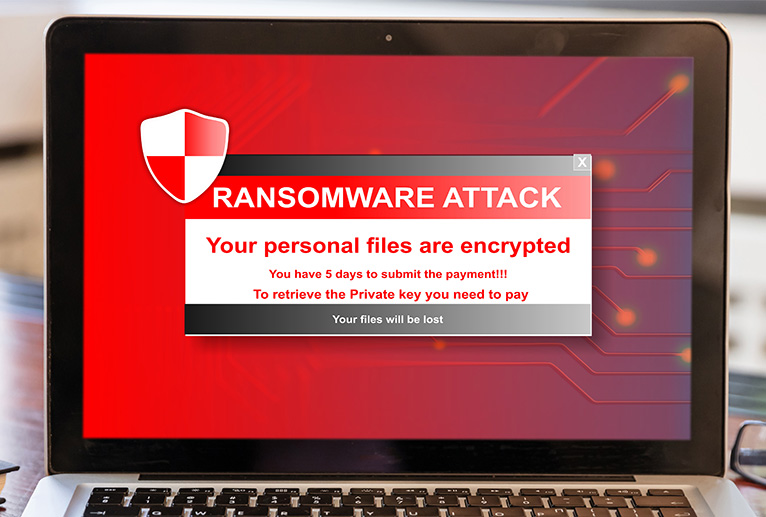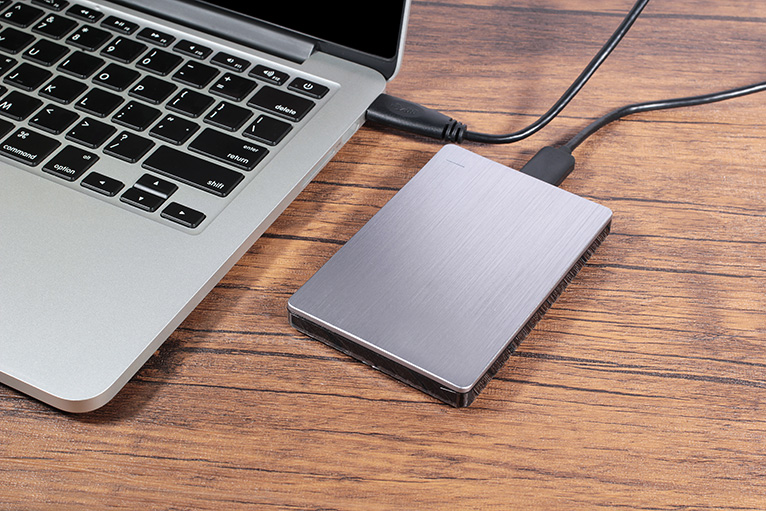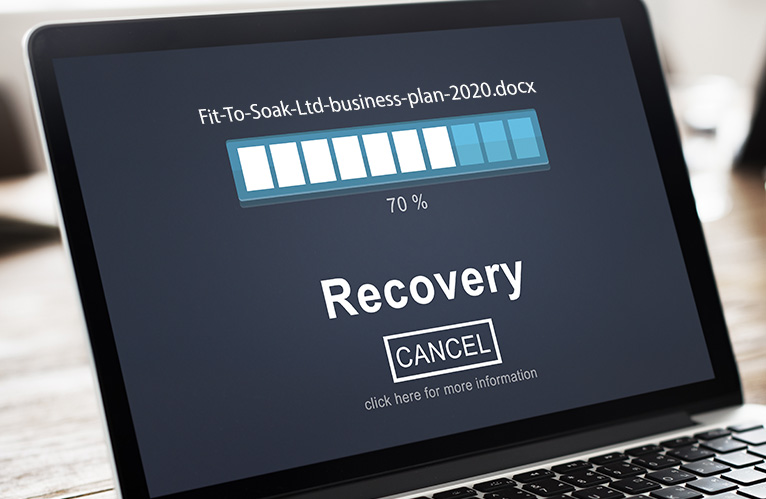Data backup: A guide for small and medium-sized businesses

What would you do if some, or all, of your business data disappeared, just like that? If you were to lose your work phone, spill a cup of tea on your laptop, or your computer’s hard drive failed, it only takes a second for important information – like inventory records, invoices and project plans – to be lost forever. So, to mark World Backup Day (31st March) we’ve put together a simple guide to help you keep your files safe. All of the tips are easy enough to put into action during any downtime you may have!
What are the risks?

Common causes of data loss include human error, technical failures, natural disasters and cyber-attacks.
According to cyber security awareness platform CybSafe, 90% of all data breaches in 2019 were caused by mistakes made by users. The top three mistakes reported to the Information Commissioner’s Office (ICO) were:
- Falling for phishing scams (deceptive emails used to obtain sensitive information – they are designed to look like genuine emails)
- Unauthorised users gaining access
- Installing malware (computer viruses)
It’s important to remember that data loss isn’t just a risk for larger companies – 40% of small companies and 60% of medium companies reported a data breach in 2019.
What are the backup options?

A good rule of thumb is that any important data should exist in two or more locations at once.
Using an external hard drive is a tried and tested method, where you simply connect a hard drive (e.g. a USB stick) to your computer and copy the data over. Whilst local backups in this way are easy to do and only require a one-time upfront cost, it can be easy to forget to do it regularly.

An increasingly popular choice is to use the cloud. With apps such as Google Drive, iCloud, Dropbox and OneDrive, you upload your documents and they’ll be stored in secure online data centres. The cloud can be accessed from anywhere, making it easy to share and collaborate on documents with colleagues. However, some apps require a monthly fee, and as your data will be stored on an offsite third-party site, there is a small risk of error or data loss on their end.
For total peace of mind, you could have backups in a local location, for example a hard drive, as well as in an offsite location using one of the cloud options listed above.
What should I back up?

Any device that has files on it that you can’t replace or re-download from another device. This is likely to be anything you’ve created, such as business documents and photos, that you’re storing on your computer, phone or tablet. Data from drones and wearable technology (like a smartwatch) that you use are also good to back up.
If you’ve got a lot of files and are wondering which ones should be backed up, these are a few key ones to consider:
- Legal documents
- Financial documents
- Business plans
- Project-specific information: contracts and blueprints
- Company document templates
Find out more about World Backup Day here.




